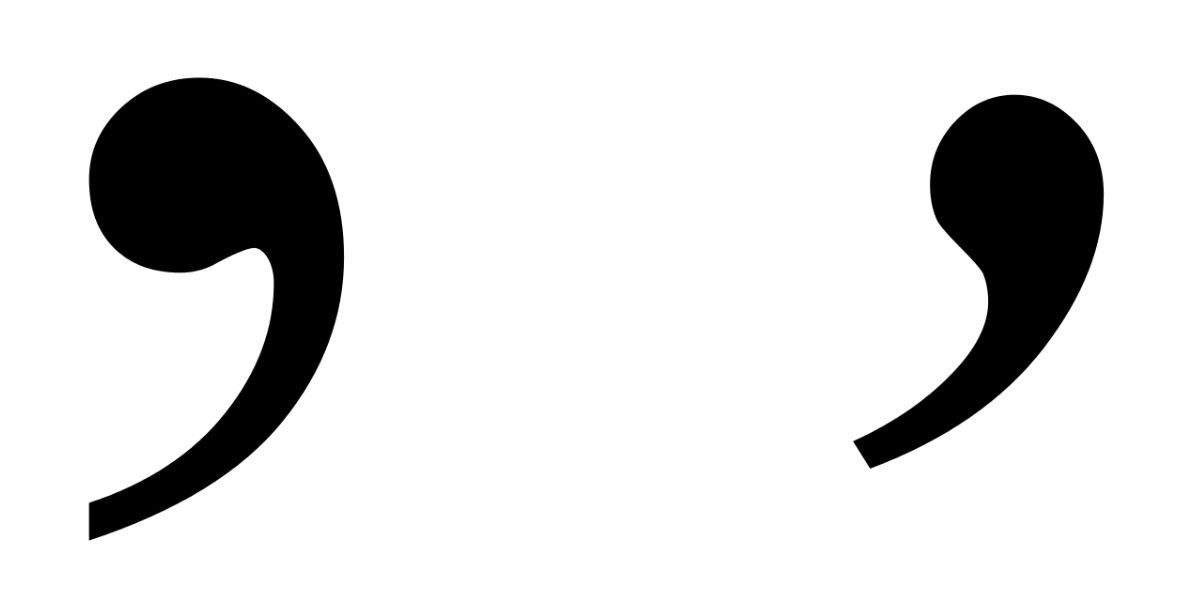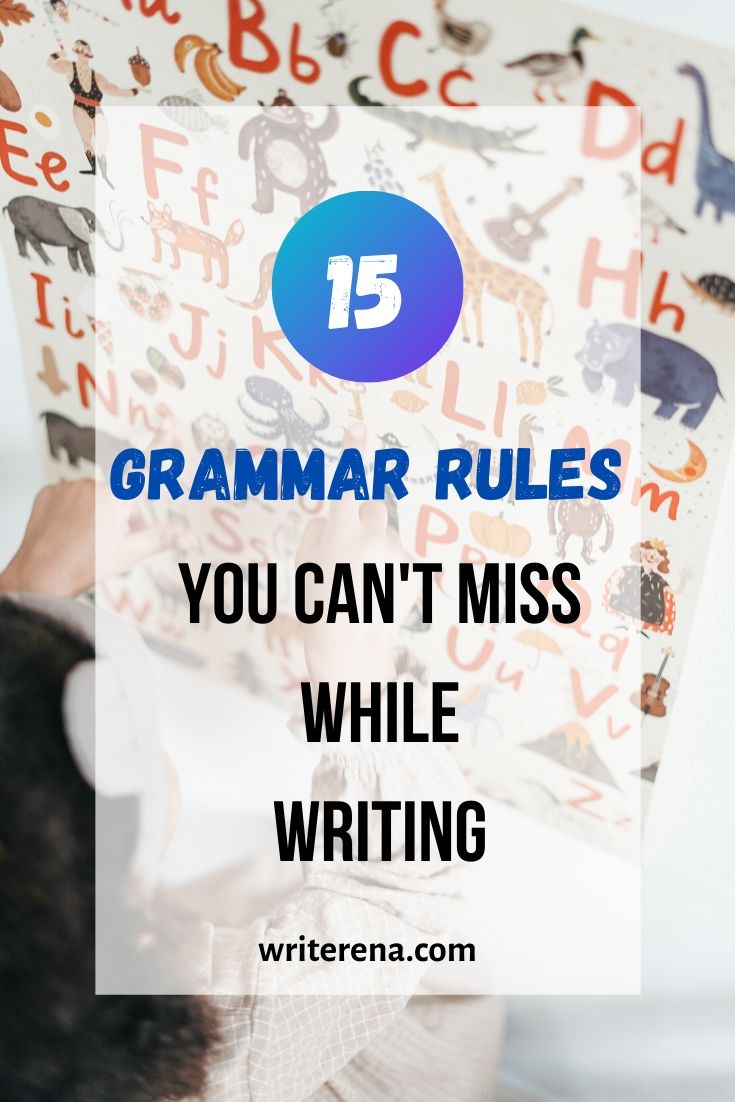Do you think it’s enough to JUST craft an extremely good tale or share a unique concept with your readers?
NO!! Writers are also obligated to be diligent to the Grammar rules.
Awful grammar is a distraction. If you could write a motionless tale, readers might overlook some grammatical issues. But, every mistake will momentarily yank readers out of the story. In short, it makes for a bad or an unpleasant reading experience.
Excellent craftsmanship entails something extra than adhering to a style manual.
It consists of making smart word choices, building sentences that glide smoothly, following the grammar rules and writing in a way that is neither awkward nor perplexing.
So, here are the 15 Grammar Rules each writer must adhere to!
TOP 15 GRAMMAR RULES AND BEST WRITING PRACTICES
As a writer, we don’t want our work to be vulnerable or dull, rather robust and vibrant.
If we examine the grammar rules and undertake quality practices in the craft, our writing can shine.
Let’s kick off with the grammar rules!
COMMAS

The most common punctuation mark and the most misused.
It’s a complex one because the policies are scarce, leaving its usage on writers’ satisfactory judgement.
Be consistent in how you use commas and strike the right balance.
Check out this post for simple comma rules
VERB TENSE
There are a couple of tenses: past, present, and future, and they’re worth understanding.
Past tense describes things already happened. Present describes the ones happening now or which are continuous. The future tense describes the events that are yet to happen.
The following table illustrates the proper use of verb tenses:
| Simple Present | Simple Past | Simple Future |
| I write nearly every day | Last night, I wrote a page | I will write as much as I can tomorrow |
| Present Continuous | Past Continuous | Future Continuous |
| I am writing an autobiography | I was writing an autobiography last night | I will be writing an autobiography tomorrow |
| Present Perfect | Past Perfect | Future Perfect |
| I have written so many articles I can’t keep count | I had written at least 10 novels when I was twenty | I will have written 50 articles by the end of the year |
| Present Perfect Continuous | Past Perfect Continuous | Future Perfect Continuous |
| I have been writing since I was tweve years old | I had been writing for three years | I will have been writing for two hours before dinner tonight |
ADJECTIVES Vs ADVERBS
Adjectives are used to describe nouns, whereas adverbs with verbs to say how things are done.
For example:
She’s a quick runner. She runs very quickly.
Here ‘quick’ is the adjective, and ‘quickly’ an adverb.
HOMOPHONES
They are little devils because spell tests won’t capture them, and they often sneak past editors’ eyes.
Too many youngsters aren’t taught proper homophone use.
Examples of homophones:
- they’re, their, and there
- complement and compliment
It pays to examine their proper usage and to proofread meticulously.
UNUSUAL PUNCTUATION MARKS
If deciding to use a punctuation mark like the ellipsis (three dots) or semicolon (comma with duration over it), then take the time to study what it’s known as and the way to use it properly.
VERB SETTLEMENT
The subject of a sentence wishes to suit the verb.
Verb conjugation, which is particularly problematic for non-native English speakers, here’s an example of a common mistake:
She have two cats. The verb ‘have’ does not go with the singular noun ‘She’.
ONLY PROPER NOUNS ARE CAPITALIZED
For some motive, many people have taken it upon themselves to freely capitalize any phrase they assume is important; an exercise rampant in commercial enterprise writing.
For example: The Product is on Sale now isn’t a correct sentence.
VERB CONSISTENCY
Verb consistency refers to keeping the same tense throughout the sentence.
For example, this sentence uses simple past tense and past perfect tense in the same clause, which is wrong.
Incorrect: She went to the store and had shopped for the produce.
Correct: She went to the store and shopped for the produce.
These errors are frequently the result of shoddy enhancing and proofreading.
“NEED TO’VE”, “OUGHT TO’VE”, “WOULD’VE”
‘Ve in these phrases is a contraction for “have” and not ‘Have to of’ as assumed by many.
CONSISTENCY
Grammar guidelines don’t cover the whole thing.
As an author, you’ll continuously be challenged to make apt decisions about sentence construction.
Be consistent and retain the style manual throughout your content.
SUBORDINATE CLAUSE
A subordinate clause is a part of the sentence which has no meaning independently because it’s not a complete sentence or a thought itself.
For example:
In the sentence, Since it will rain today, I carried an umbrella to the office.
‘Since it will rain today’ is a subordinate clause.
PRONOUNS AND ANTECEDENT
Pronoun is a word that takes the place of a noun, and antecedent is the word preceding the pronoun.
The pronoun must agree with its antecedent in number.
For example:
The Prime Minister, Narender Modi delivered his speech today.
‘Prime Minister’ is the antecedent, and ‘his’ is the pronoun.
LOSE vs LOOSE
‘Loose’ and ‘lose’ are two confusing words.
‘Loose’ is commonly used as an adjective as the opposite of tight.
‘Lose’ means you’re unable to find something. Like, if your bangles are loose, you’ll lose them.
FARTHER vs FURTHER
You use ‘farther’ when you’re referring to a measurable distance, and ‘further’ whilst relating to summary lengths.
For example: You can throw a ball farther, and that could further your career.
THERE IS, THERE ARE, THERE’S
‘There is’ is constantly singular. Its contraction, ‘there’s’ is likewise always singular. ‘There are’ always plural.
By no means confuse their use. A novel contraction can’t take the place of a plural (even though it is often used this way informally).
Final Words on Grammar Rules
This list is only a taste of grammar rules and best writing practices which are frequently not noted.
Note these grammar rules in a diary so you don’t forget to practice them while writing your next content. Now that you have worked on some basic grammar, here are some cool substitutes for common words to kick-start your quality content creation.
Guilty of breaking any other grammar rules? Drop them in the comments and we’ll help you.
Before you leave, share the post with your writer friends and make them aware of the RIGHT grammar rules to follow.
Also Read: How to Improve your English Writing Skills in 30 Days?

- Tips for Health: How to Take Care of the Self as a Freelance Writer - July 3, 2020
- Ruin your Writing by Missing these 15 Simple Grammar Rules - June 5, 2020
- How to Improve your English for Writing Easily - May 15, 2020


